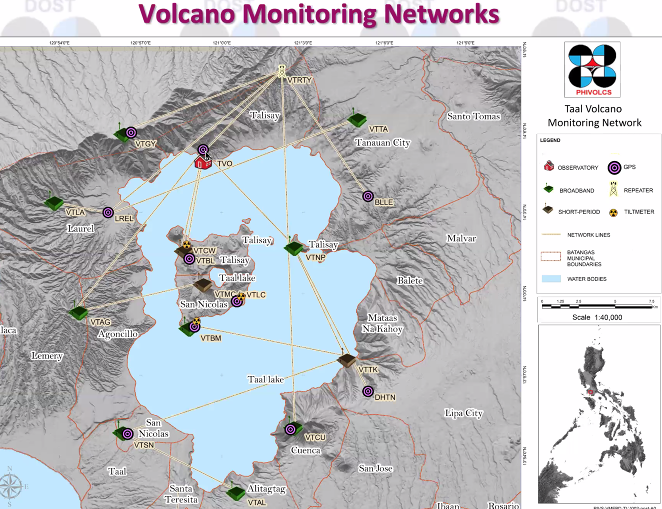DOST-PHIVOLCS talks volcano hazards on Science Week

The Department of Science and Technology-Philippine Institute of Volcanology and Seismology (DOST-PHIVOLCS) is continuously monitoring active volcanoes that are under alert level status. Among the volcanoes that are reported to be showing continued activities are the Taal Volcano, which has shown no signs of respite at Alert Level 2 while Mt. Kanlaon is on Alert Level 1.
In one of the three-part webinar series conducted by DOST-PHIVOLCS’ talk series titled, Volcano Monitoring of the Philippines' Most Active Volcanoes during the 2021 National Science and Technology Week (NSTW) celebration, the webinar focused on informing the public on how the Institute was able to detect volcanic activities through its monitoring networks.
Under the DOST-PHIVOLCS is the National Volcano Monitoring and Warning Program, a flagship program that provides early-warning information on volcanic activities by providing near real-time data based on various volcano monitoring equipment.
The webinar provided a brief but extensive walk-through of the DOST-PHIVOLCS volcano monitoring system as explained by Ma. Antonia V. Barnas, Chief of the Volcano Monitoring and Eruption Prediction Division when she presented during the two-hour webinar the basics in monitoring volcanoes.
The participants were provided with significant information on the volcano monitoring networks in different parts of the country, including state-of-the-art monitoring tools, instrumentation, and data processing systems up to the issuance of the volcano bulletins.
Closed to 500 participants have actively participated in the webinar via Zoom and Facebook Live.
Among the questions raised was on the participation of citizens in sharing information on active volcanoes through social media. Ms. Barnas however, cautioned the public and explained that although the agency encourages citizen participation, however, they should have the right training, skills, and knowledge on the datasets.
Barnas added that “[but] the practice of our office is that we are responsible and should be able to explain the data we are presenting.” Moreover, she believes that in the future, the citizens could be active partners in promoting science and technology.
DOST-PHIVOLCS is continuously developing and enhancing its volcano monitoring system to provide accurate information and effectively communicate its hazards and risks. Currently, the Philippines has 300 volcanoes with 10 out of the 24 active volcanoes are monitored by the Institute.
The 2021 NSTW celebration was held from 22-28 November 2021. To watch the full video of the webinar, click on the link www.facebook.com/PHIVOLCS. (By Ryan Sebastian Soyosa, DOST-STII)

